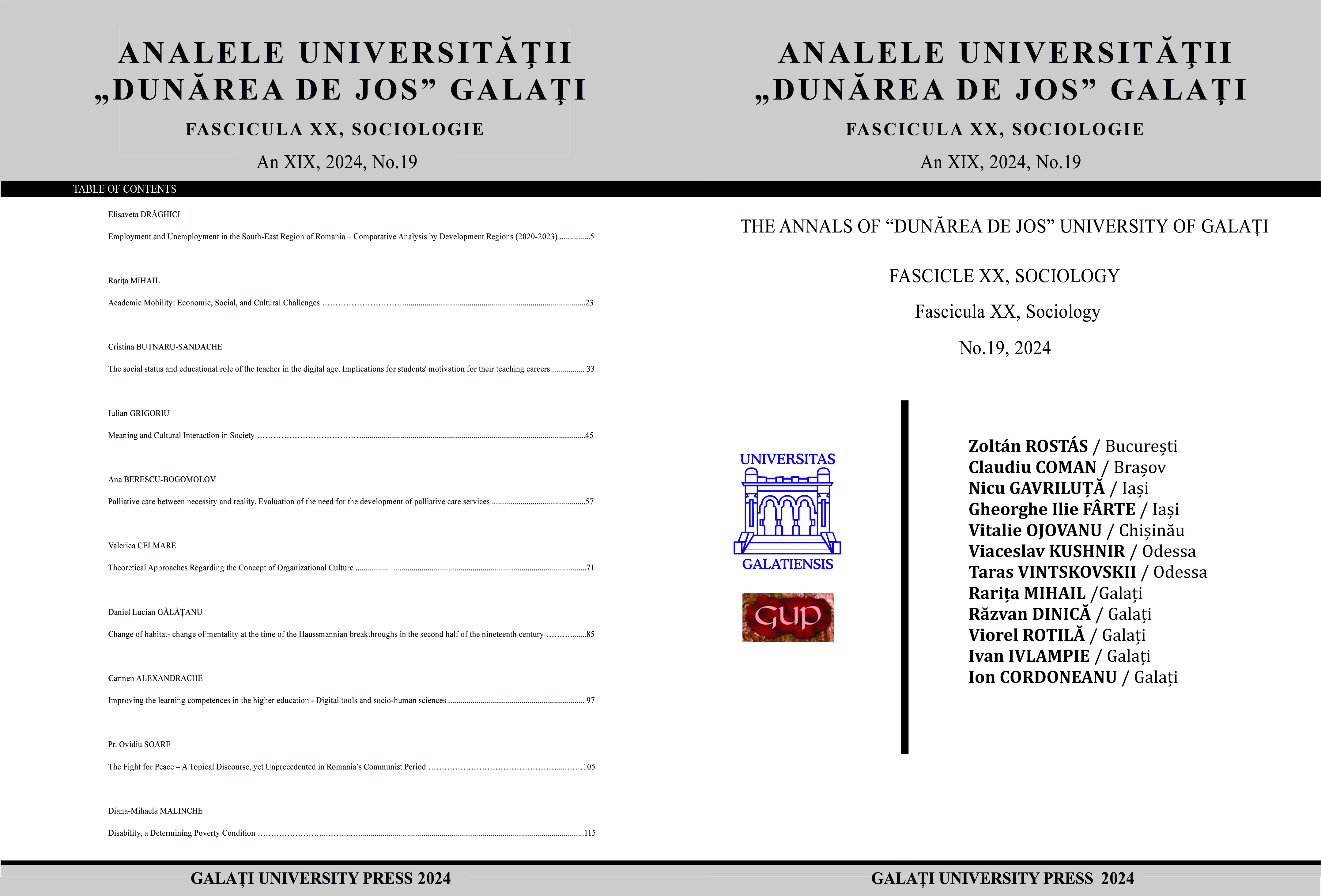Academic Mobility: Economic, Social, and Cultural Challenges
Abstract
The development of a knowledge-based society, the liberalization of trade, and the increase in foreign direct investment have led to the internationalization of research and development activities and the enhanced mobility of human resources in the fields of science and technology. Globally, there is unprecedented competition for talent, making it a vital strategy for advanced economies and a major aspect of globalization. On one hand, the specialized literature discusses academic mobility not as an end in itself but as a means to contribute to the training of students, intellectuals, (future) researchers, teachers, directors, and the global citizens of tomorrow. On the other hand, the emigration of researchers and higher education staff is seen as a complex phenomenon, part of the brain drain, which must consider global developments. The purpose of this article is to demonstrate that the significance of the brain drain concept must be understood through the complementarity of various aspects it encompasses, including: the emigration of individuals with higher education; a significant number of highly qualified emigrants; emigration from developing or underdeveloped countries to developed countries; the effects of the emigration of specialists on both the source and destination countries; the international mobility of students, researchers, experts, and other professionals; the positive effects generated by return migration (investments, trade, technology, human capital); the low level of remittances; the direct impact on the source country, especially in professions with a significant social impact, such as doctors, teachers, and researchers. Thus, the phenomenon of highly skilled personnel emigration must be addressed within the context of global talent competition and policies to encourage the international mobility of researchers.


